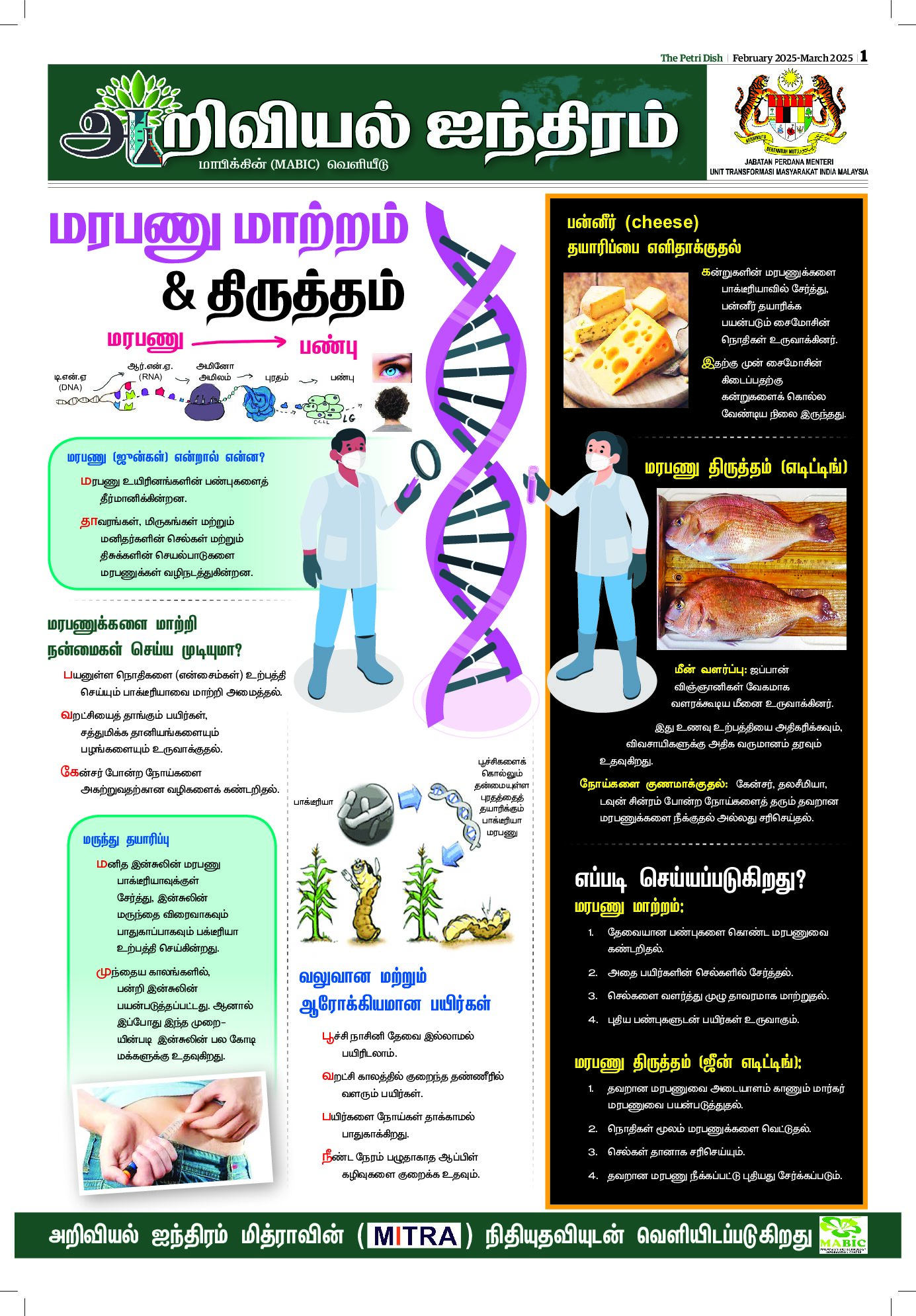BY JOTISRI VASUDEVAN & NIK FARAH HANEEM
WHEN we envision Doctor of Philosophy (PhD) graduates today, the images immediately spring to mind: pursuing careers in academia and conducting research in various subject of their interest. However, beyond these conventional paths, a myriad of other exciting possibilities emerge.
One remarkable trend that showcases the expanding possibilities for PhD graduates is the rise of high-tech industries employing their talents.
Biogenes Technologies Sdn Bhd, a leading biotechnology firm well known for its aptamer-based biosensing platform, is setting an exemplary standard by demonstrating that PhD graduates are not limited to berth in these conventional avenues.
While academia and research remain valuable paths, Biogenes is actively seeking out and employing PhD graduates across various industries, harnessing their expertise to drive innovation and propel growth. This emerging trend is challenging traditional norms for graduates and breaking new molds.
Out of Biogenes’ 17-member team, an impressive seven hold PhD (~42%), highlighting the company’s dedication to nurturing high-skilled talents and providing them with an alternative path to thrive in the industry.
Dr Low Ley Hian, Global Alliance Lead at Biogenes Technologies, is a testament to this paradigm shift for PhD graduates. As a Neuroscience PhD graduated from the University of Melbourne and with postdoctoral experience in Melbourne and San Francisco, Low represents the growing number of PhD graduates who have successfully transitioned from academia to the industry.
“PhD graduates can indeed transform themselves, not limited to pursuing their academic research career alone, but to take on other essential roles within a company such as operations, business development, regulatory affair and etc. That is possible!” he firmly stated.
Low emphasised: “The graduates must cultivate an open mindset and be agile according to the needs of the environment and financial situation at the moment. The risk of switching to an alternative career path might bring great rewards in your future.”
This signifies that flexibility plays a critical role, and it is often essential for a graduate to take calculated risks when selecting or switching jobs, enabling them to fully utilise their vast potential.
In a compelling professional account, Low shared an inspiring example of academic versatility. Dr Ng Hui Xuan, a distinguished neuroscience PhD graduate, had also successfully transitioned from academia to an industry role after a fierce battle of applying of more than 200 jobs and interviews.
“After working as a consultant at McKinsey in the USA, she joined Grab as a regional head for growth and revenue management and eventually became the chief commercial officer of BioMark which is a subsidiary of Pathology Asia Holdings.”
“Therefore, the transition of a PhD student, if they seize the opportunity correctly, can propel them from their traditional academic research trajectory and contribute to the society in a different way,” he said.
Low asserted: “The transferable skills and effective communication skills in professional settings are very important, such as taking full responsibility for projects and project management within the industry.”
“All these skills can be transferred to other companies by PhD students, not necessarily our research of interest,” he added.
Low exemplified that Artificial Intelligent (AI) is already capable of handling complex tasks like editing that were traditionally within the domain of human capabilities. But human skills, such as interpersonal communication and project management and convincing stakeholders, remain essential and irreplaceable by AI.
Consequently, graduates must make their human skills stronger by stepping outside of their comfort zone, he believed.
However, Low contended that the effort must go both ways – companies themselves must be equipped with sufficient capital and willing to provide opportunity to attract valuable PhD talents.
“Usually a small and medium-sized enterprises (SMEs) rely on affordable labour to continue to maintain their profit margin. These SMEs might not require a PhD employee to enhance their business’s bottom line, nor they have the capital or want to invest to retain the PhD graduates with market salary range.”
“We can’t forever rely on SMEs, or even large companies solely focusing on solely manufacturing operations, we need to have an upsurge of high-tech innovative industry to work hand in hand to retain these PhD talents,” he added.
Low is proud that Biogenes Technologies had secured its Series A investment from Pembangunan Ekuiti Sdn Bhd (PESB) in January 2023. This successful fundraising allowed the company to expand its infrastructure and also entice valuable PhD minds to join its ranks to develop innovative products and benefit humanity.
Low further elaborated using Biogenes Technologies Sdn Bhd as an example, demonstrated that the key to addressing PhD unemployment lies in the growth of high-tech industries.
“I am positive that Malaysia is showing good sign that the current policy makers are aware and making positive changes for Malaysian high tech industry value chain. By bringing industry stakeholder to work hand in hand with the policy maker in synchrony, we could help Malaysia to move upward of the high-tech value chain and impact. Only then, the high-tech industry can attract capital investment to retain PhD talents, creating wealth for the country, which leads to a positive feedback loop,” he elucidated.
A self-reinforcing cycle where a small change or action leads to more of the same, causing a process to amplify or grow over time is called a “positive feedback loop.”
This loop not only generates economic prosperity but also reduces the issue of “brain drain” in our country wherein talents leave for opportunities abroad.
In essence, as we envision a future ripe with abundant local opportunities, and with Biogenes leading the charge, the sky’s the limit for those daring enough to venture beyond the mold.
With this, Low’s message rings loud and clear – flexibility, adaptability, and a willingness to embrace change are essential traits that will enable graduates to flourish in this dynamic era.










